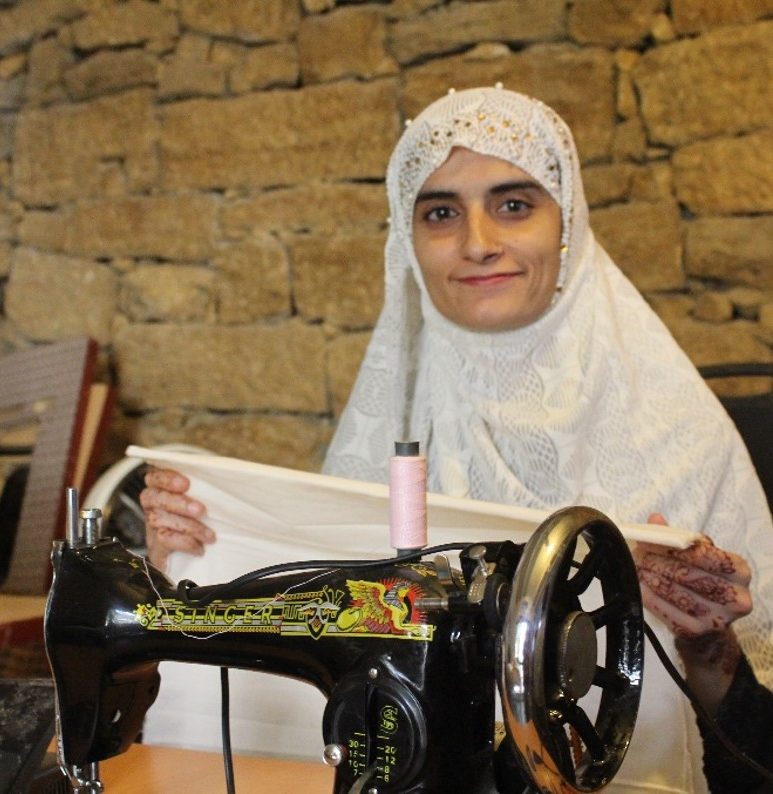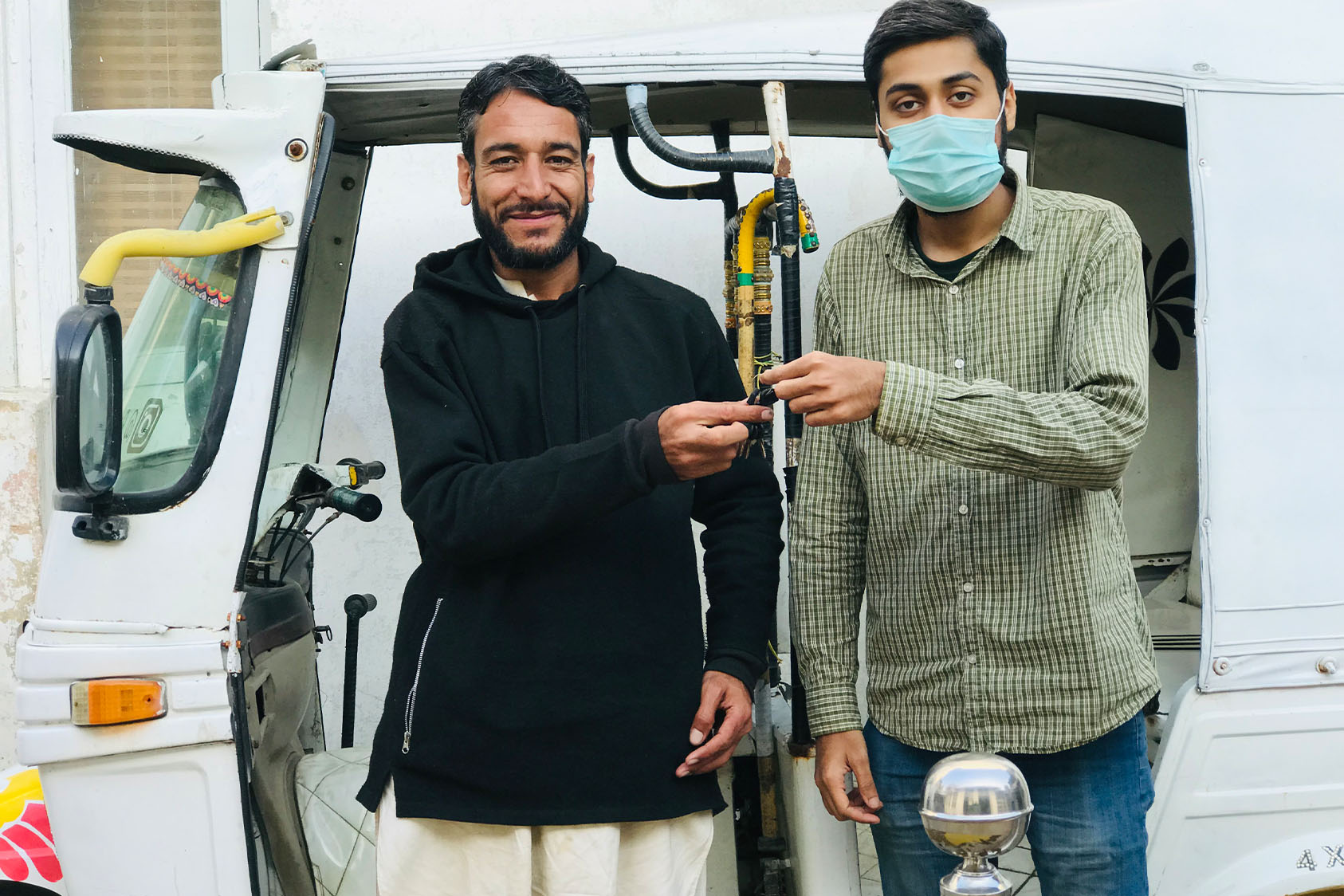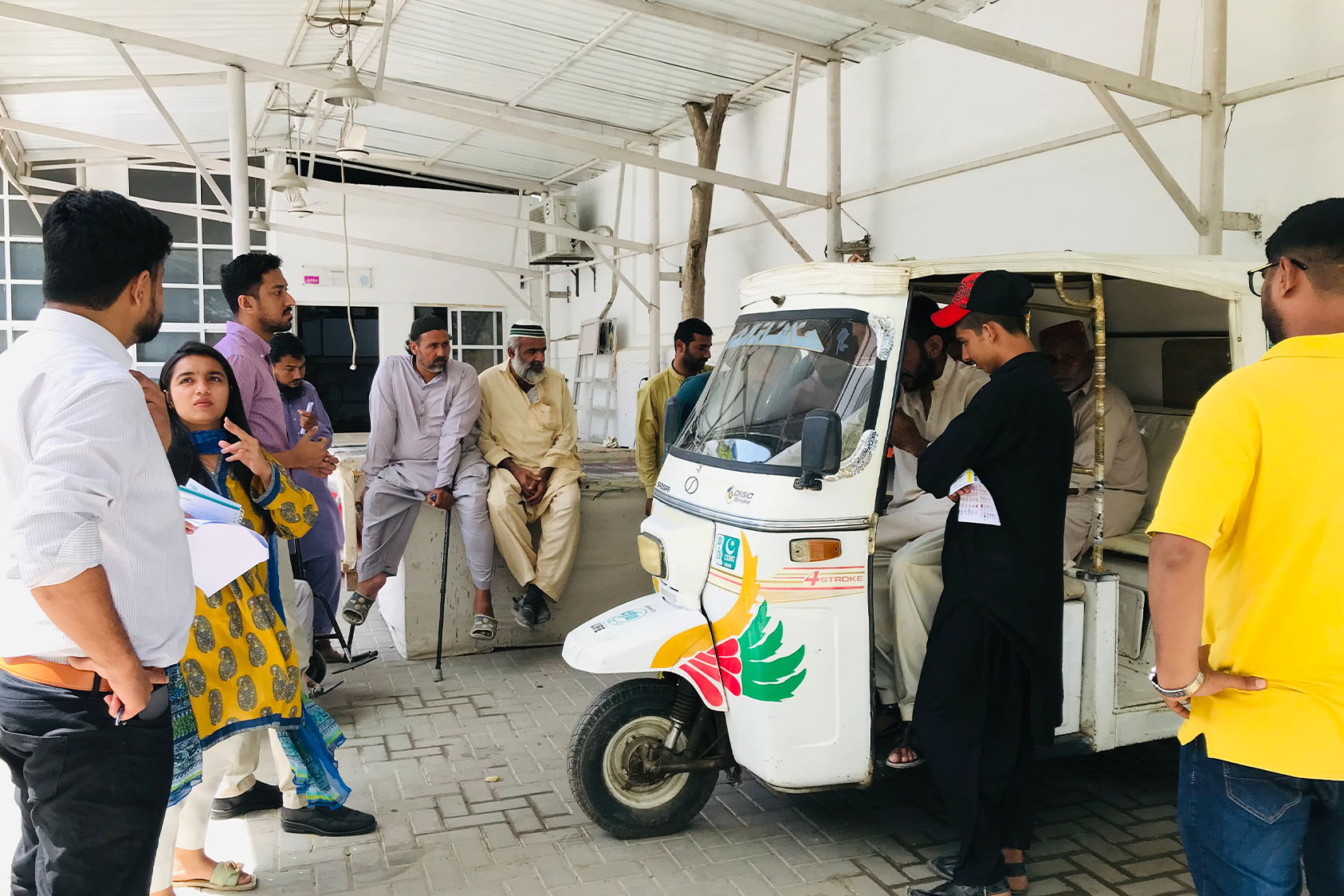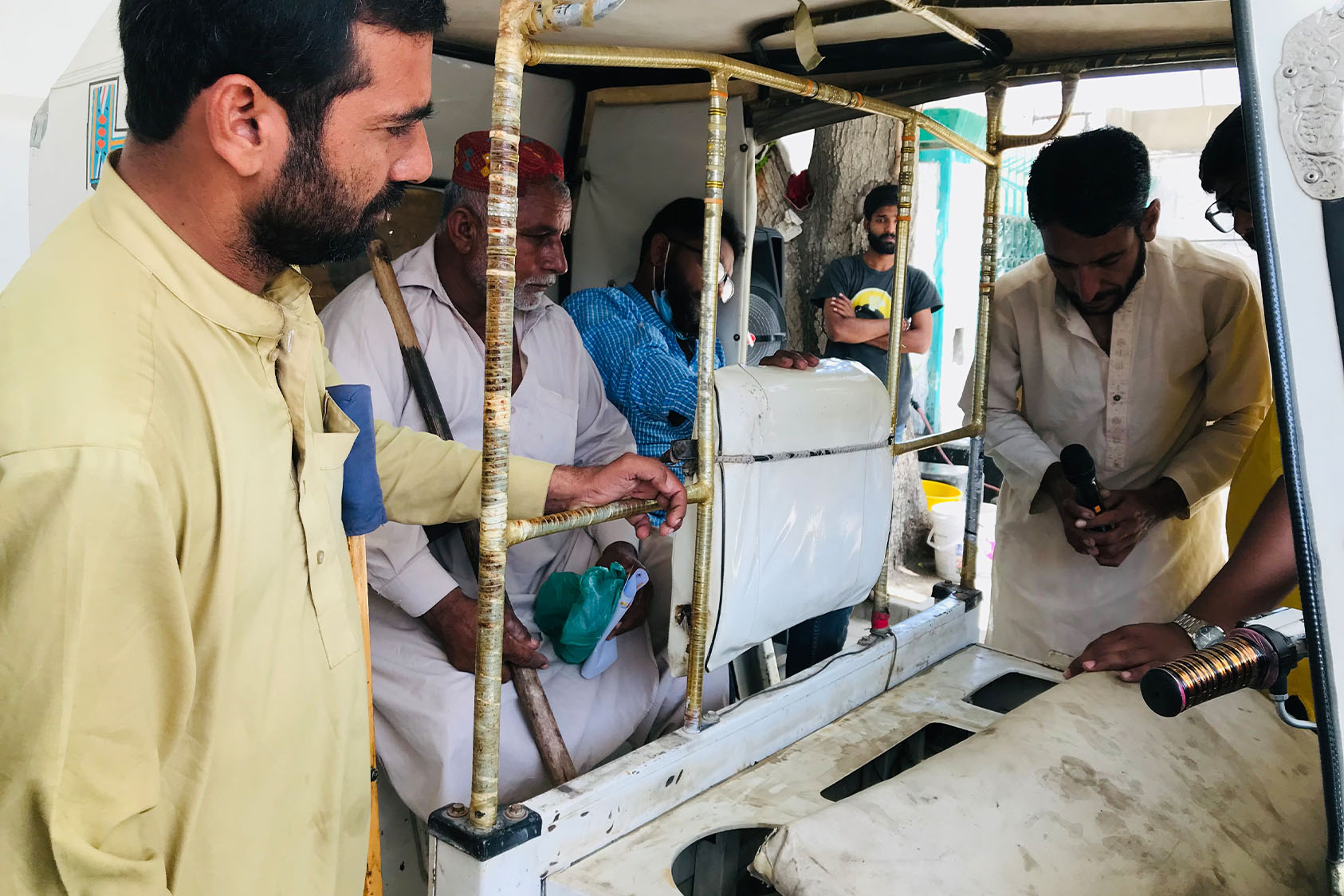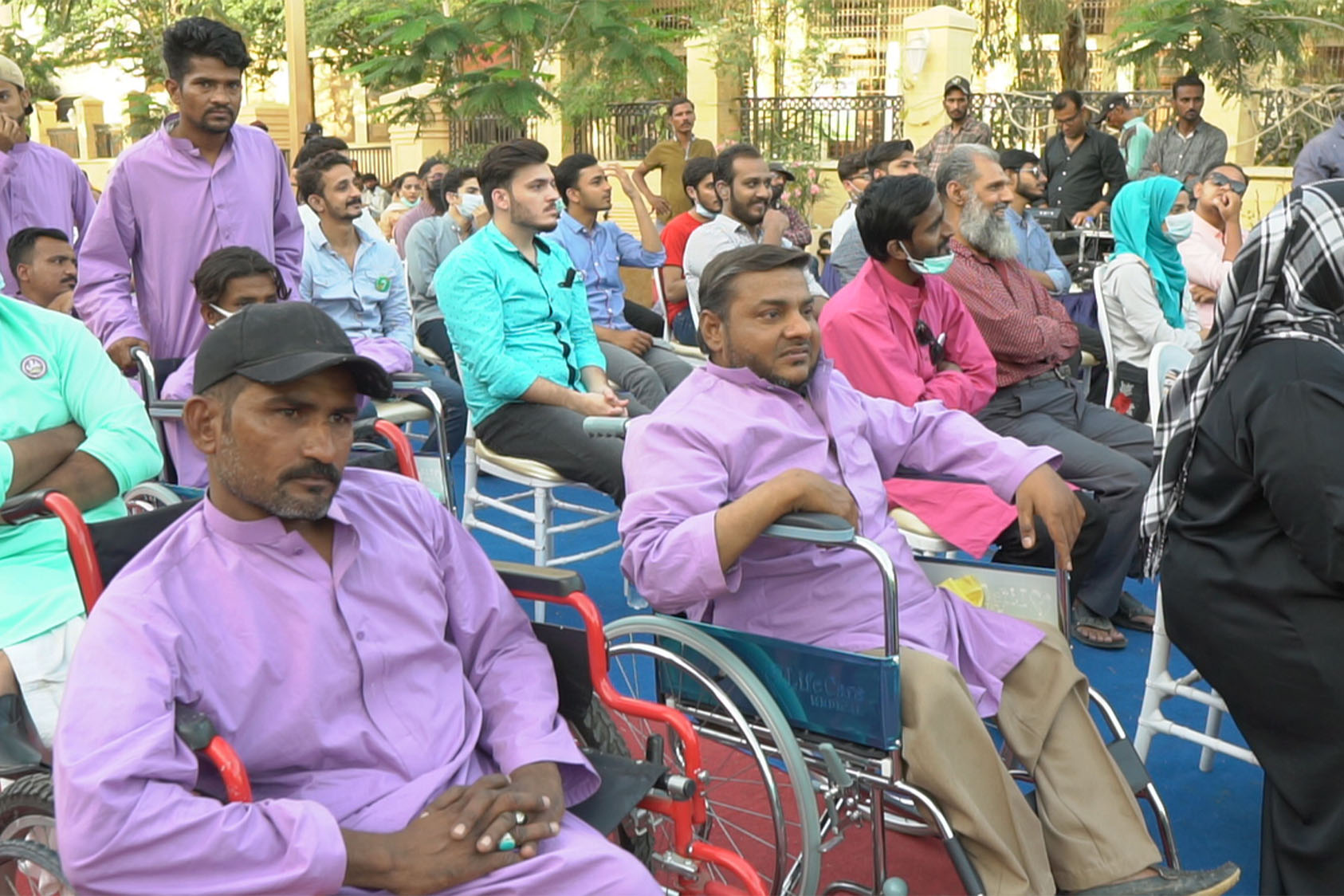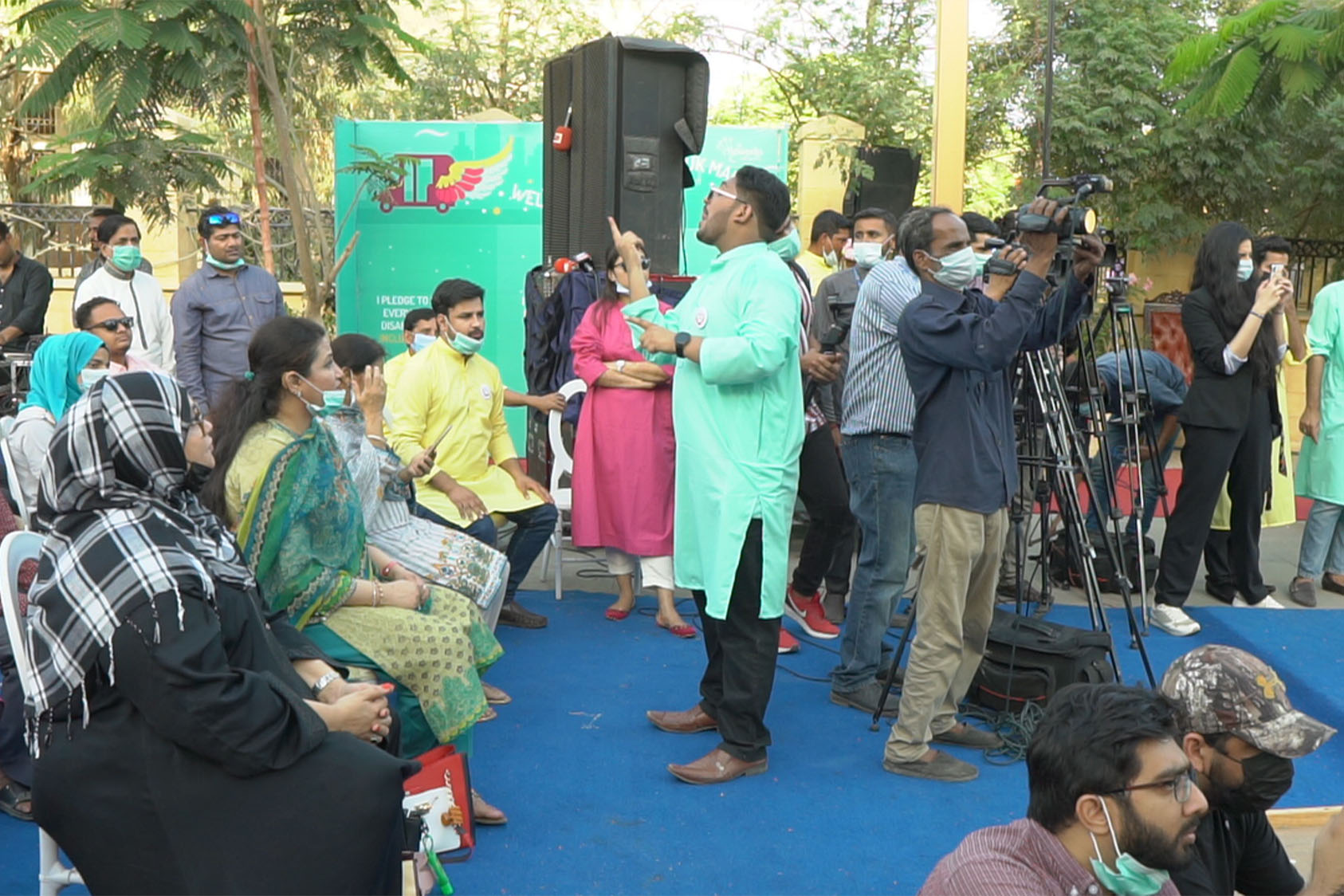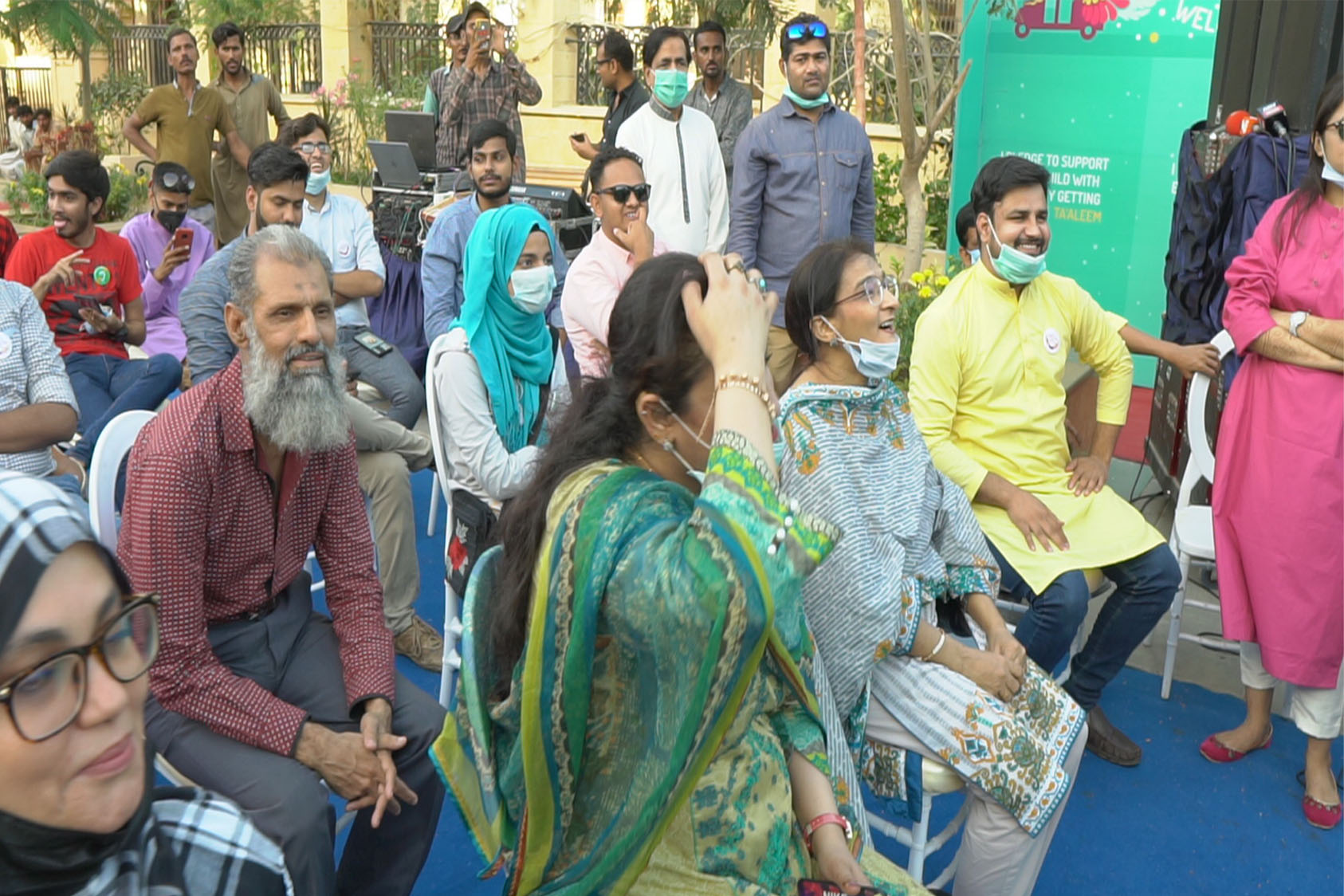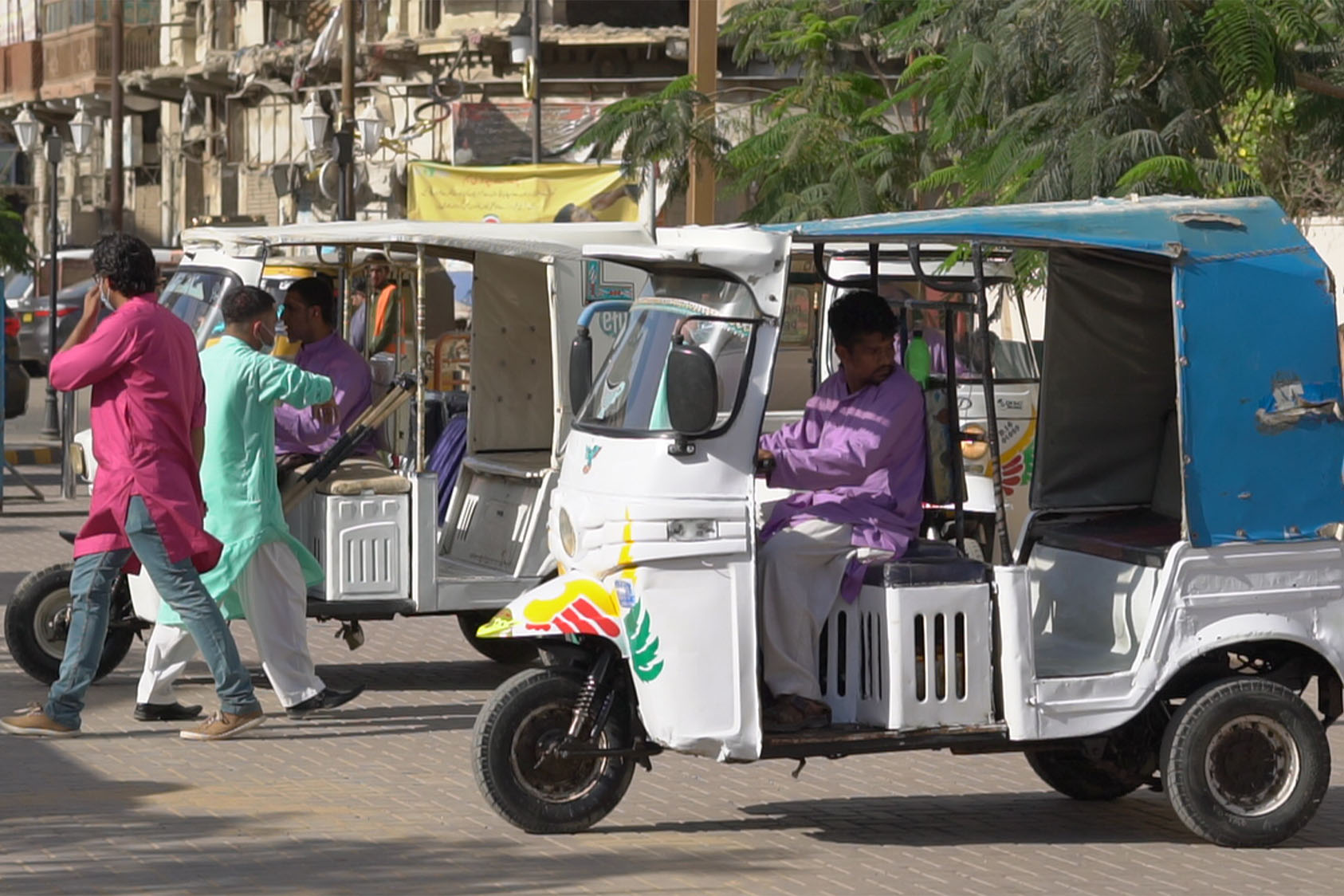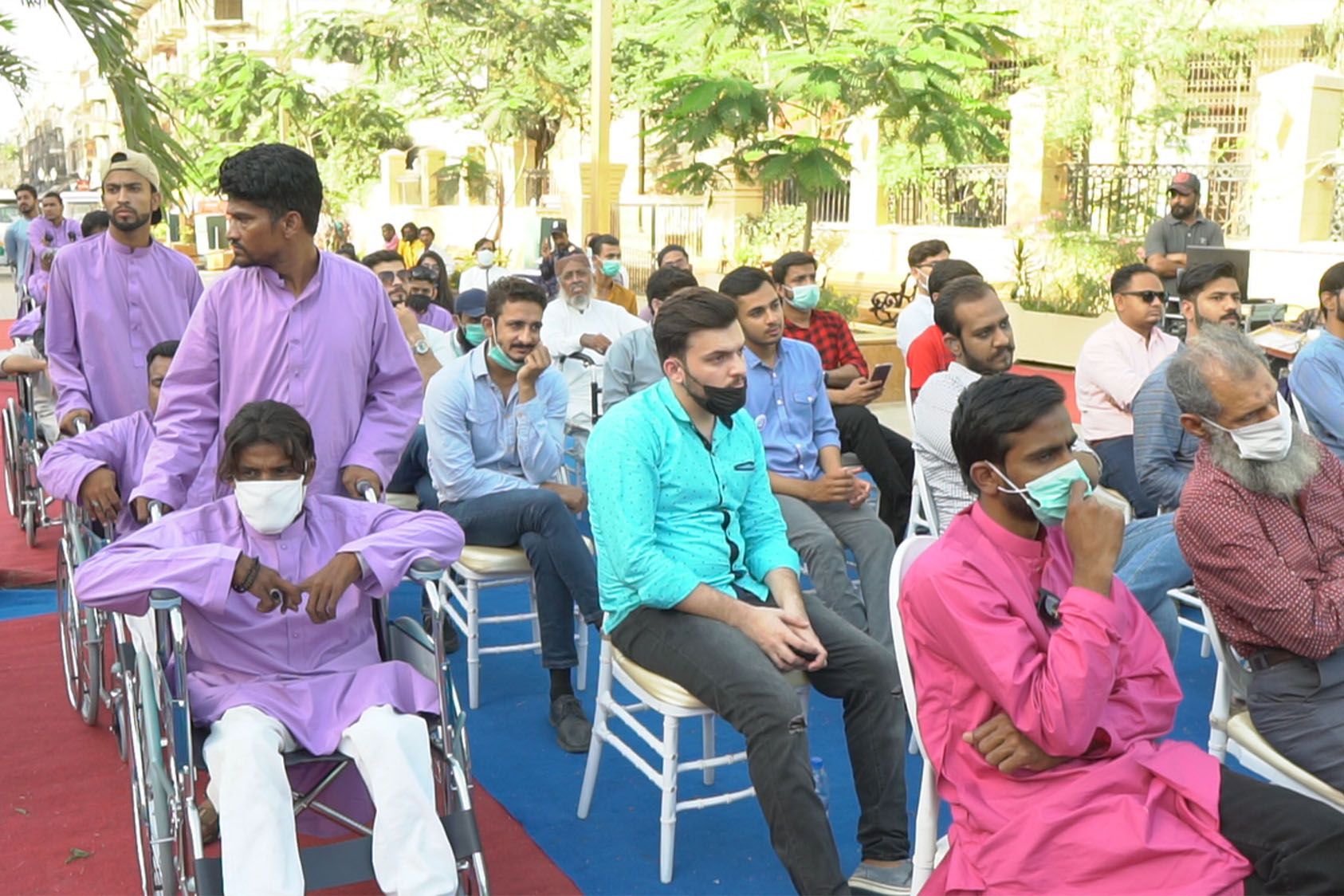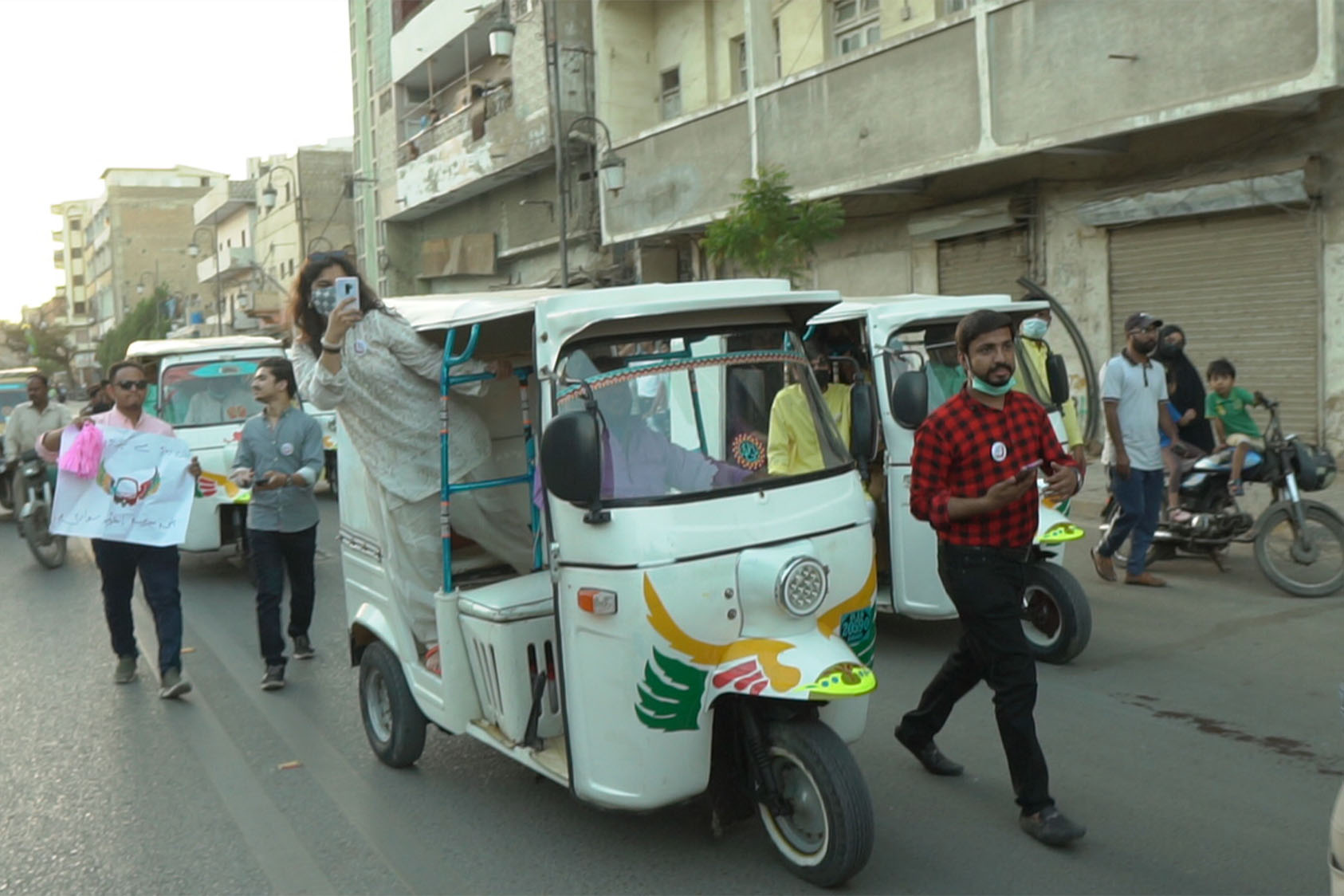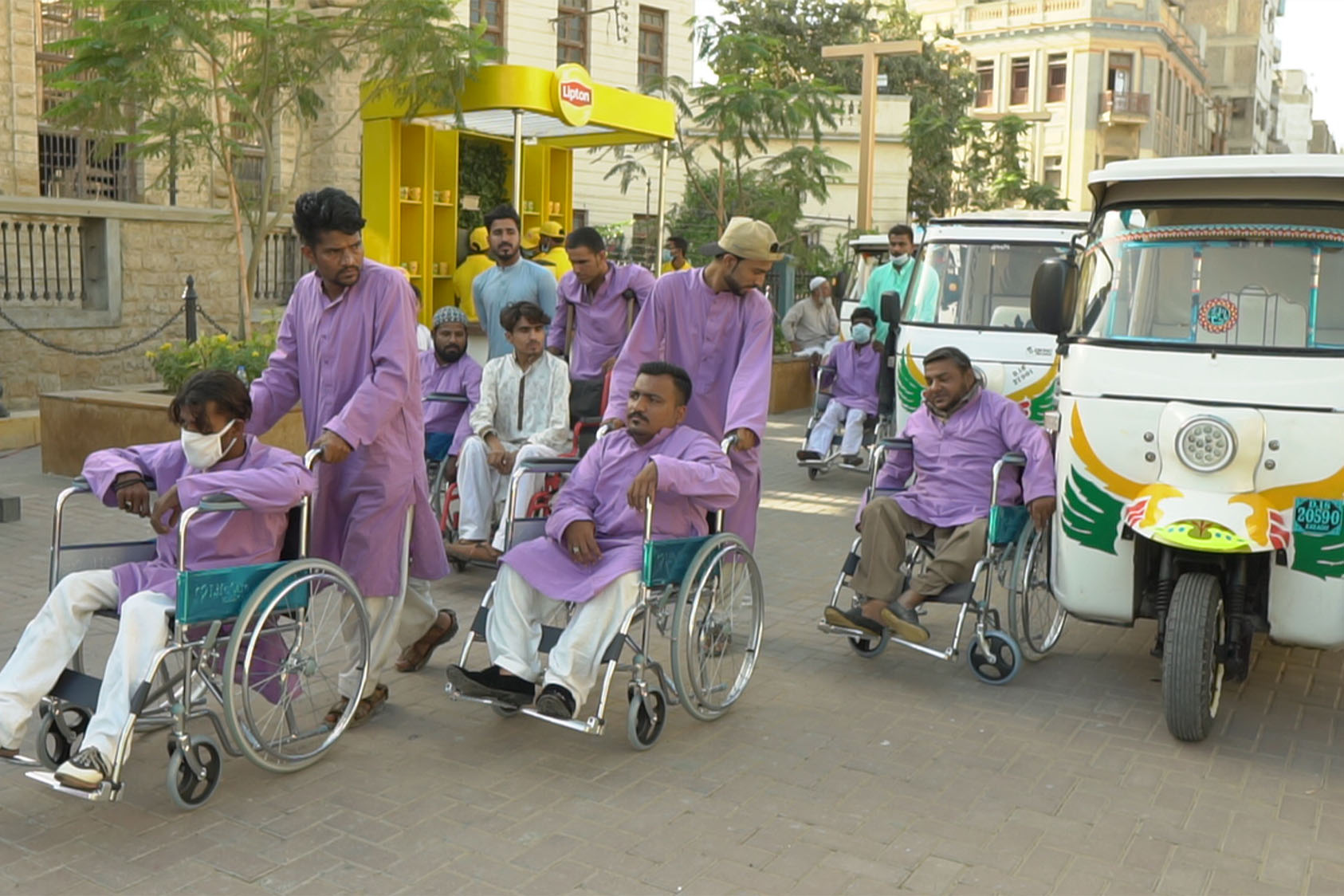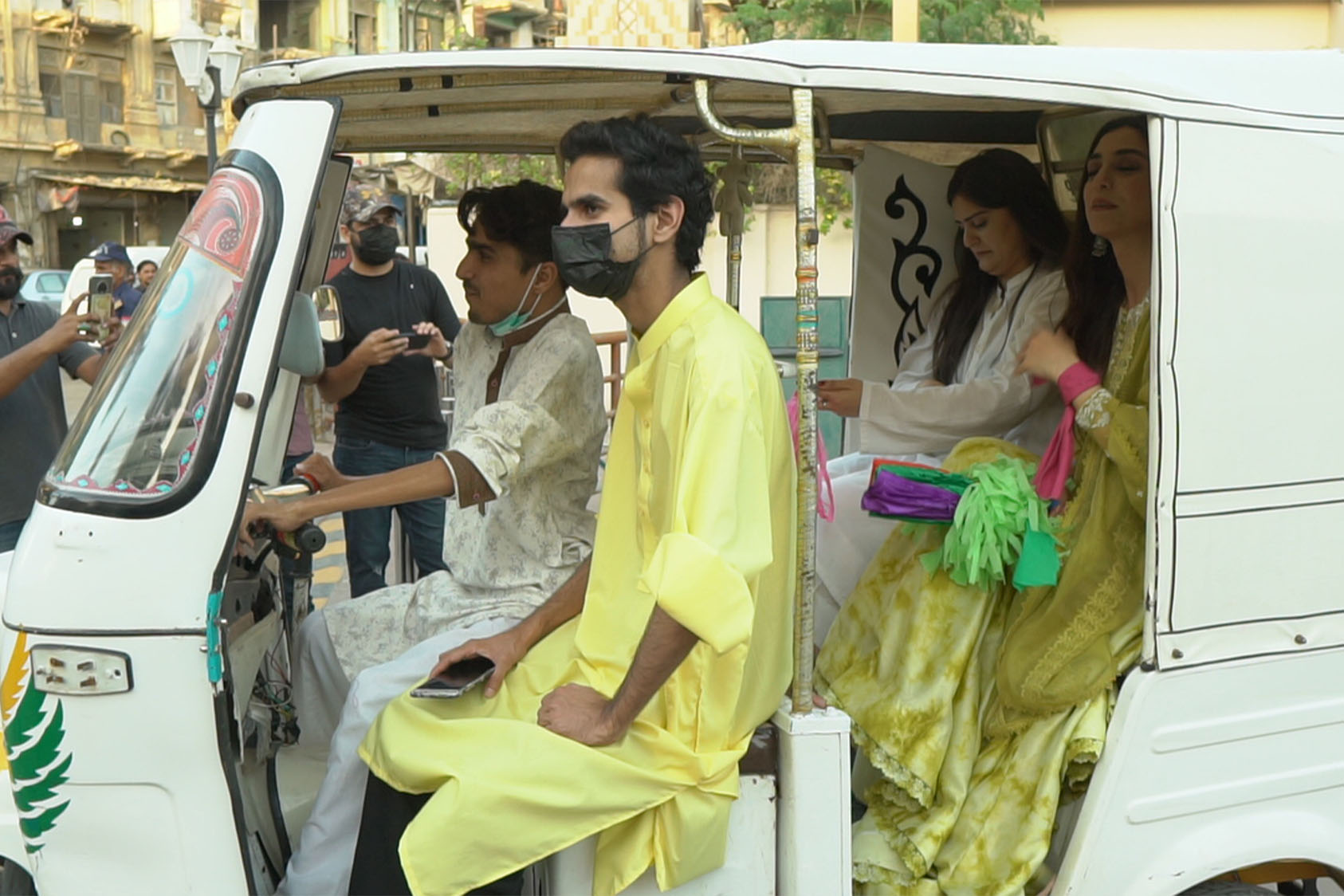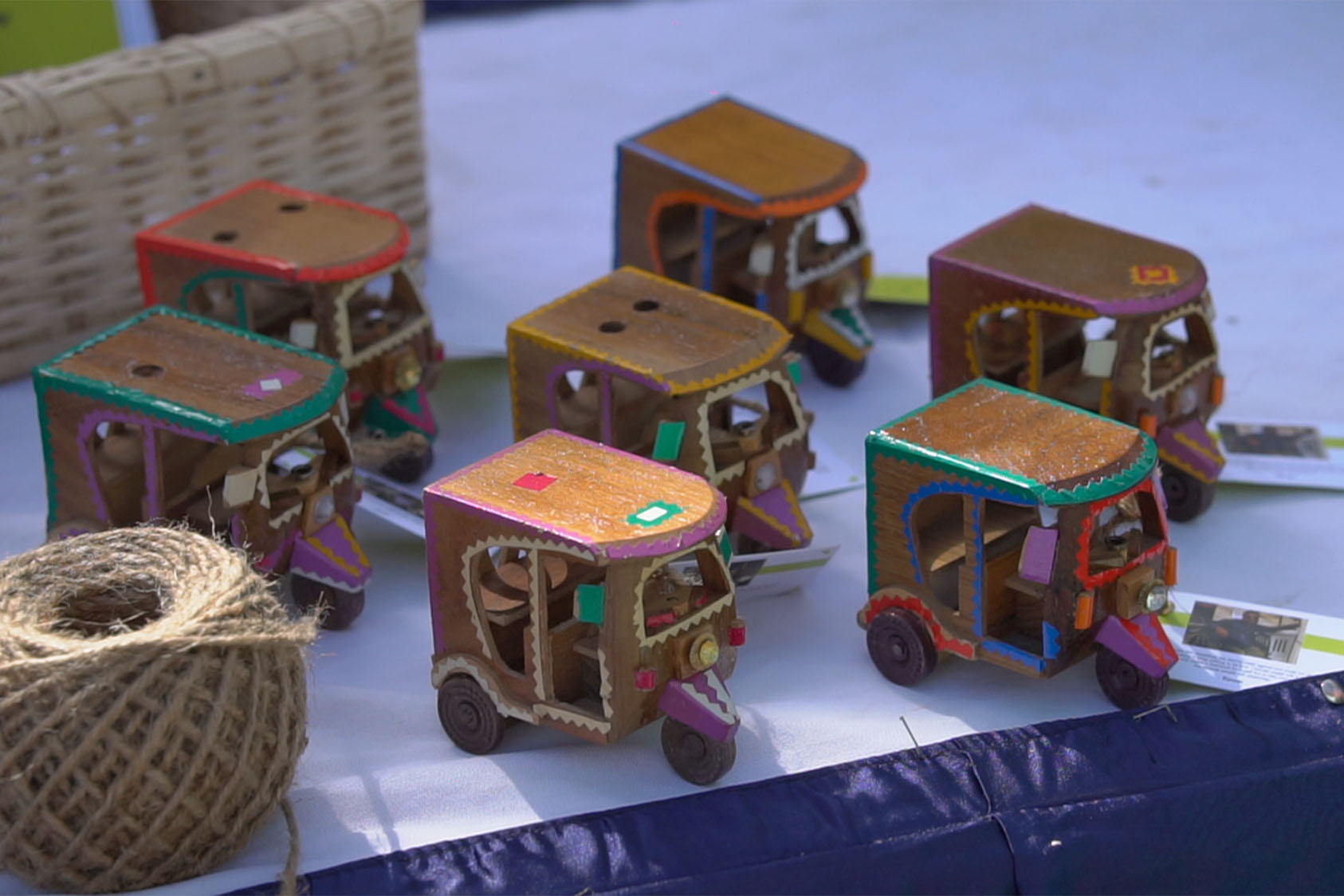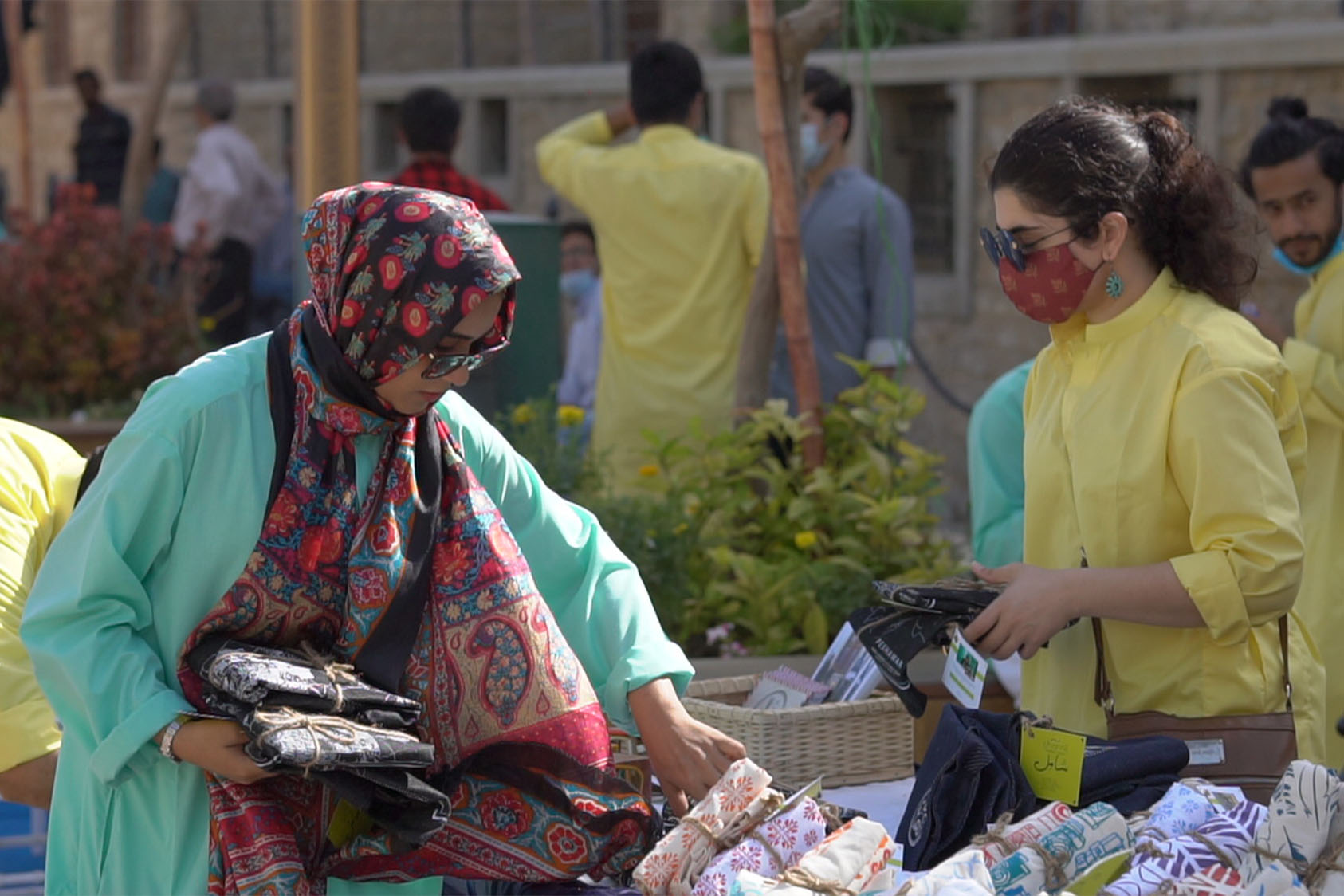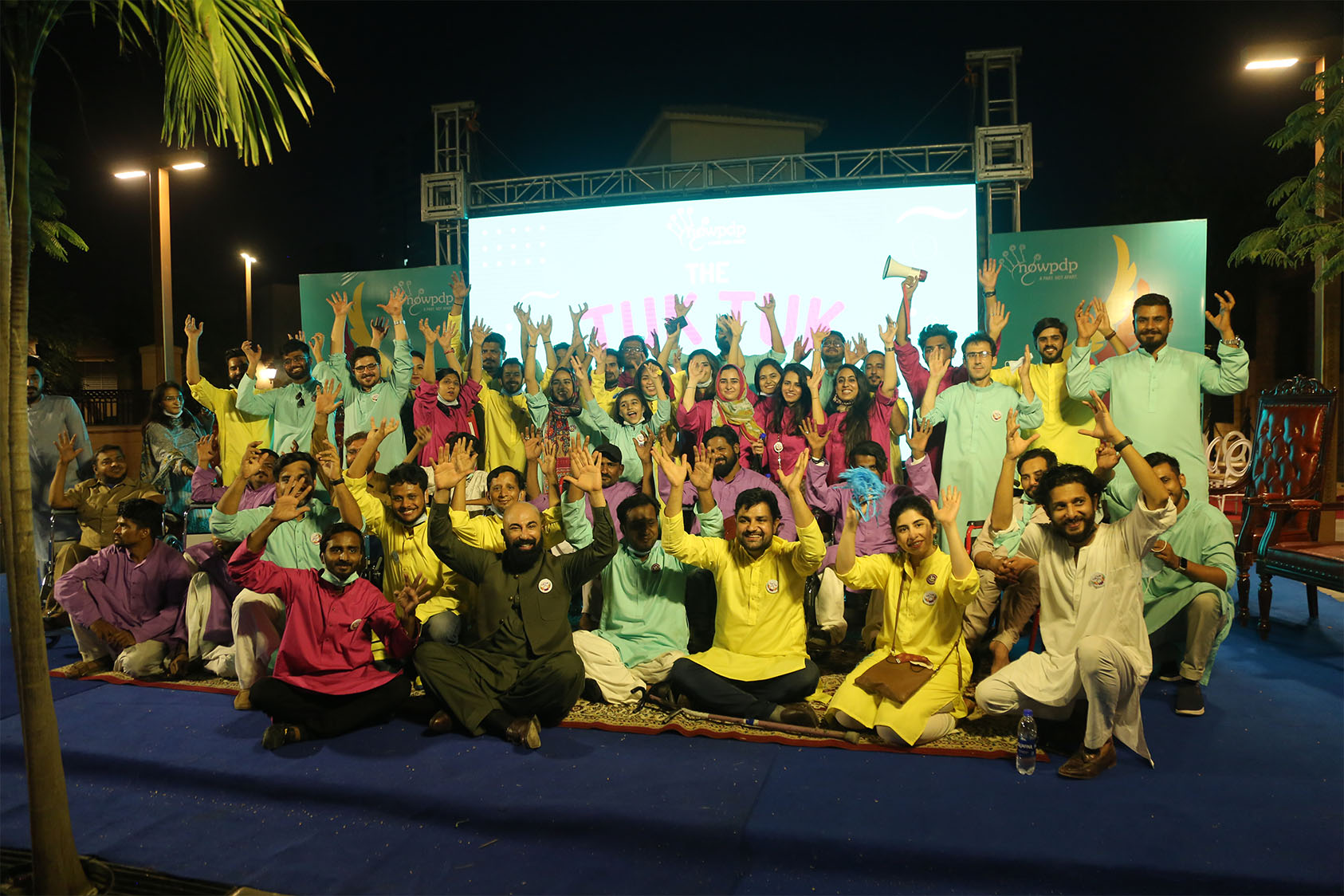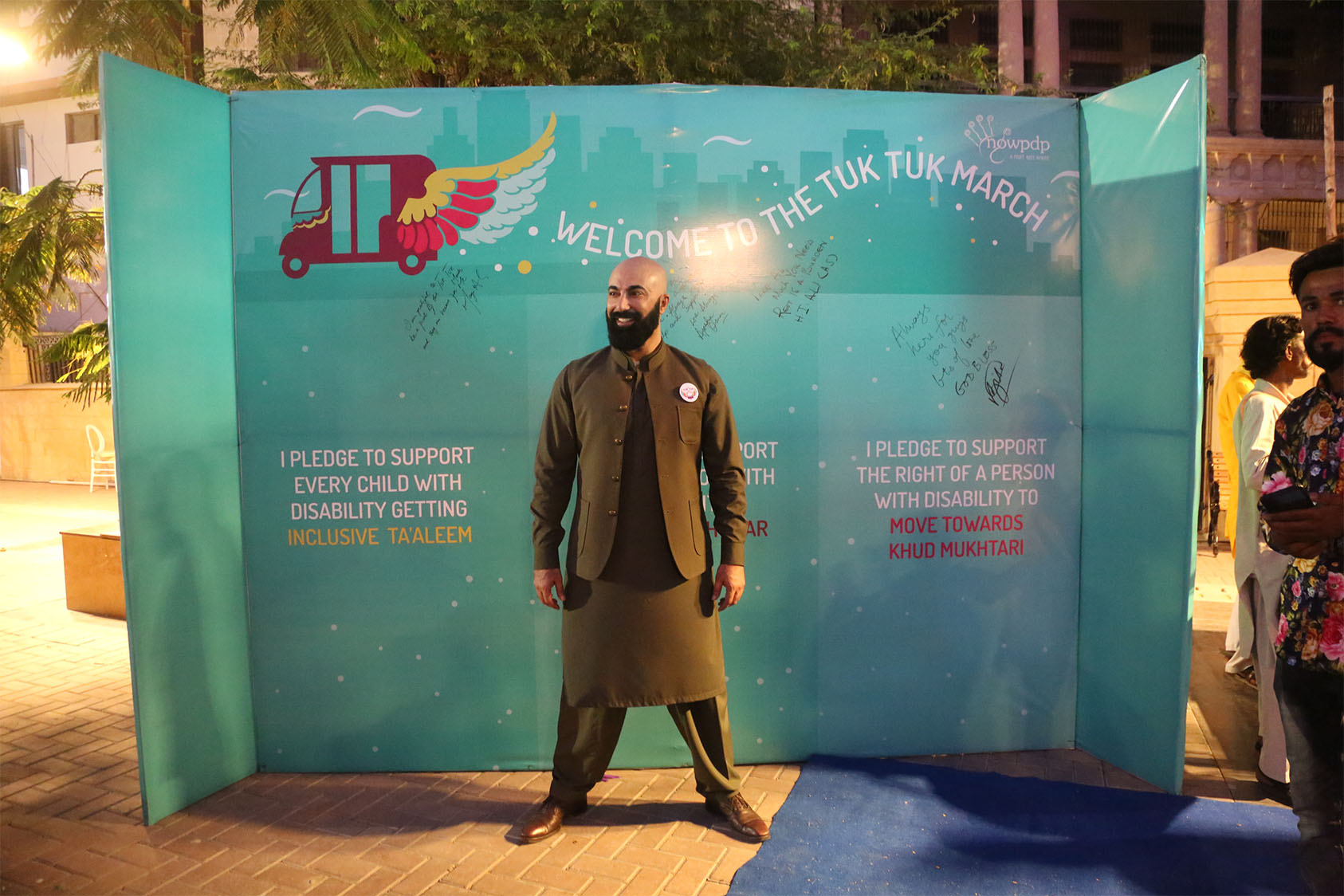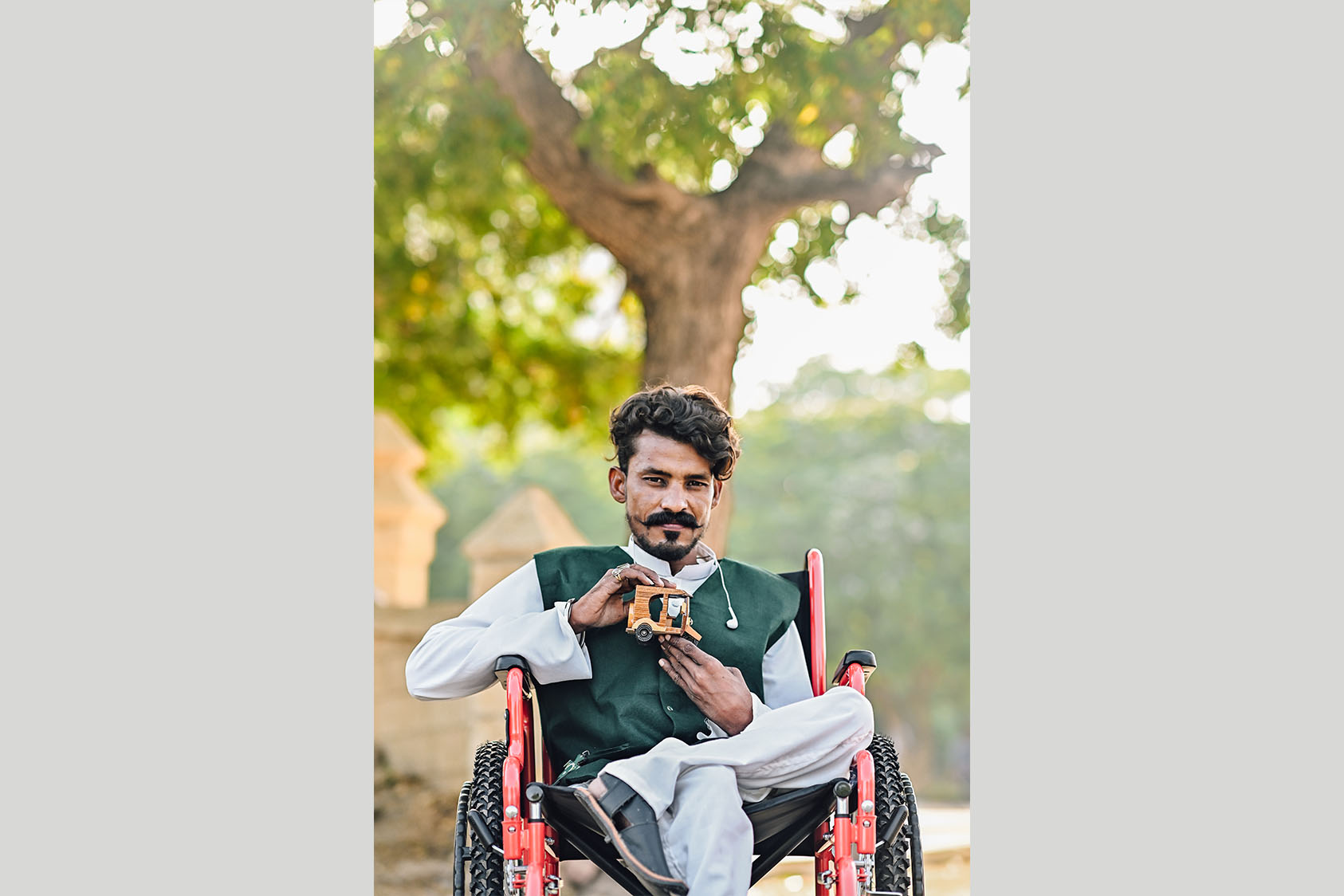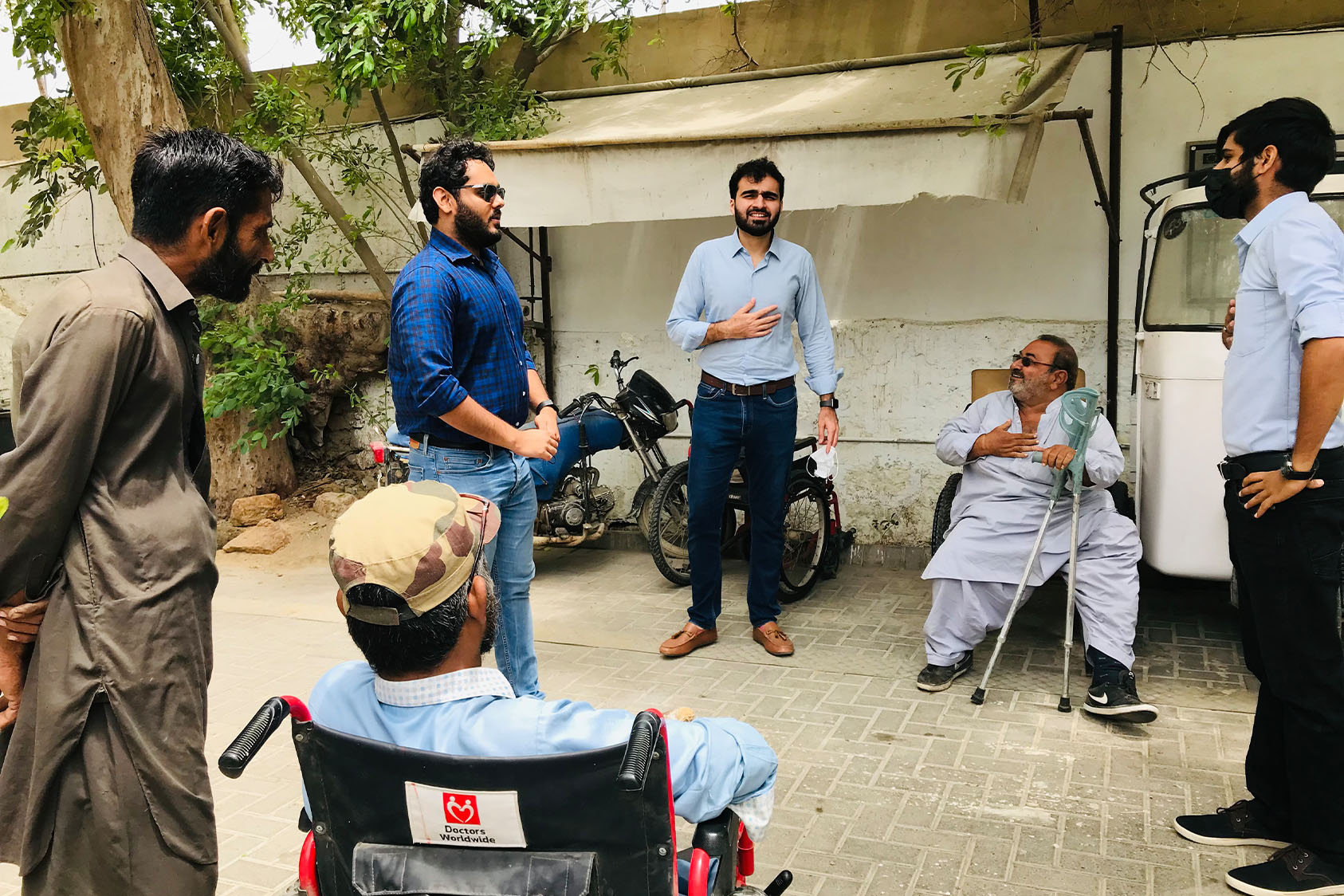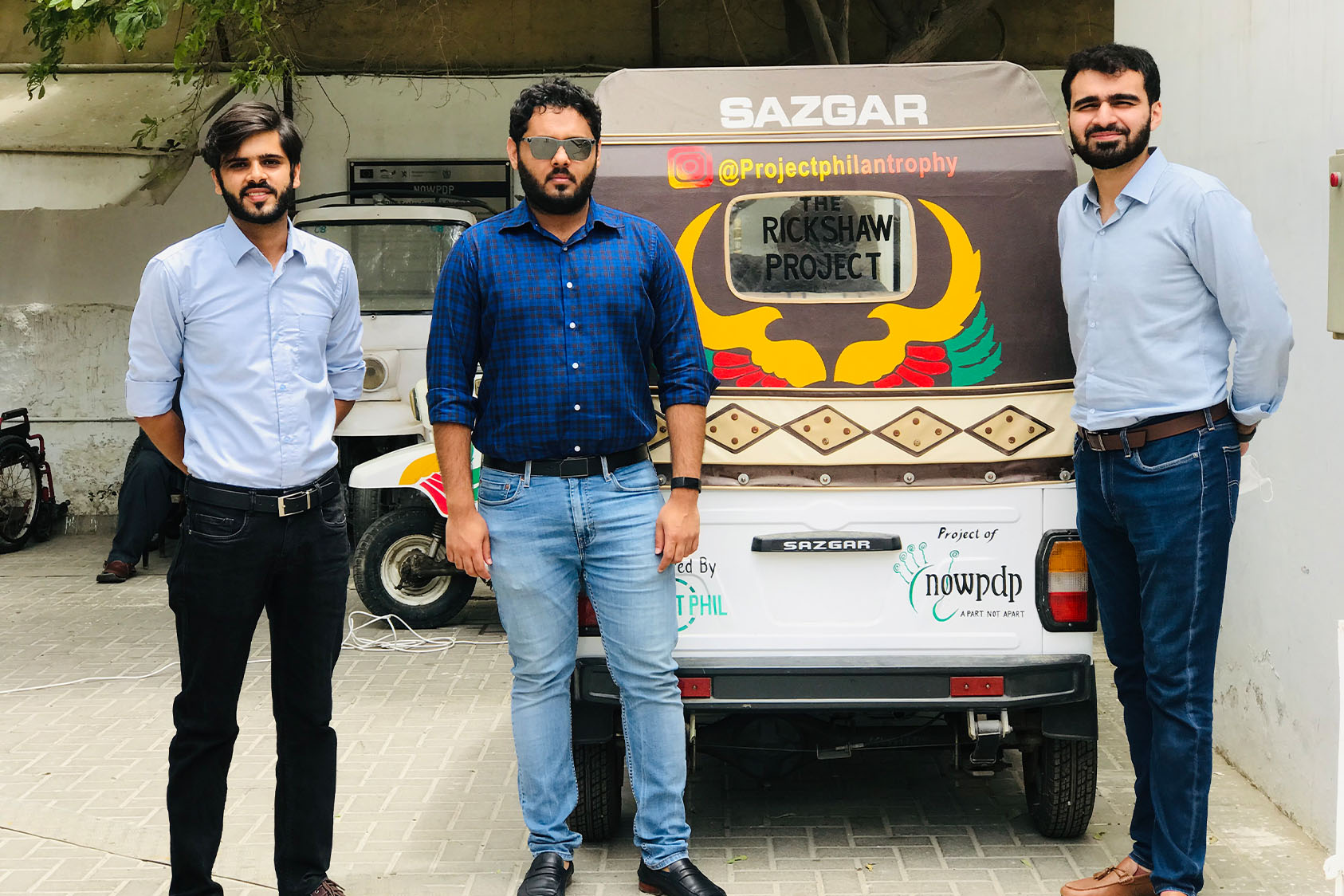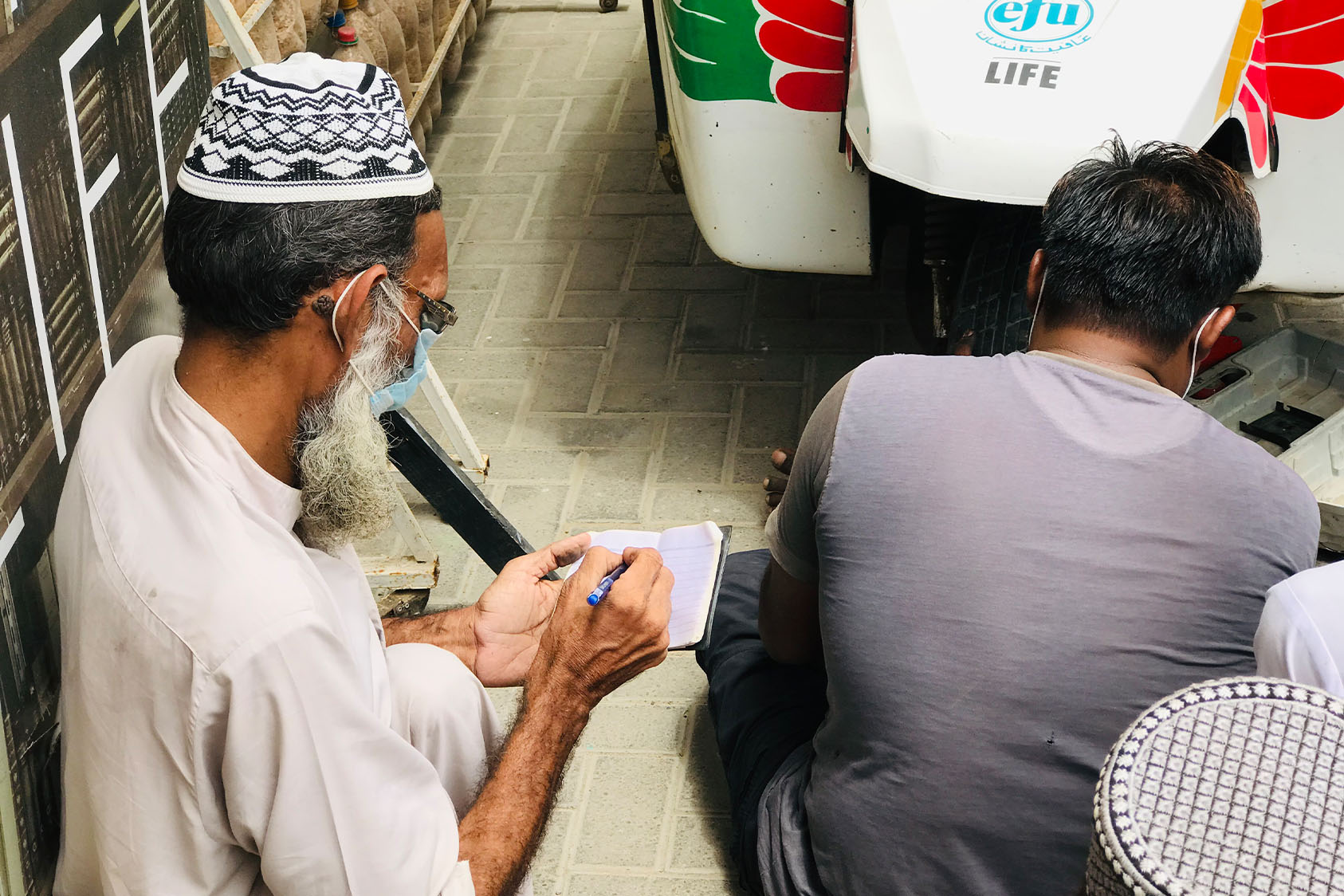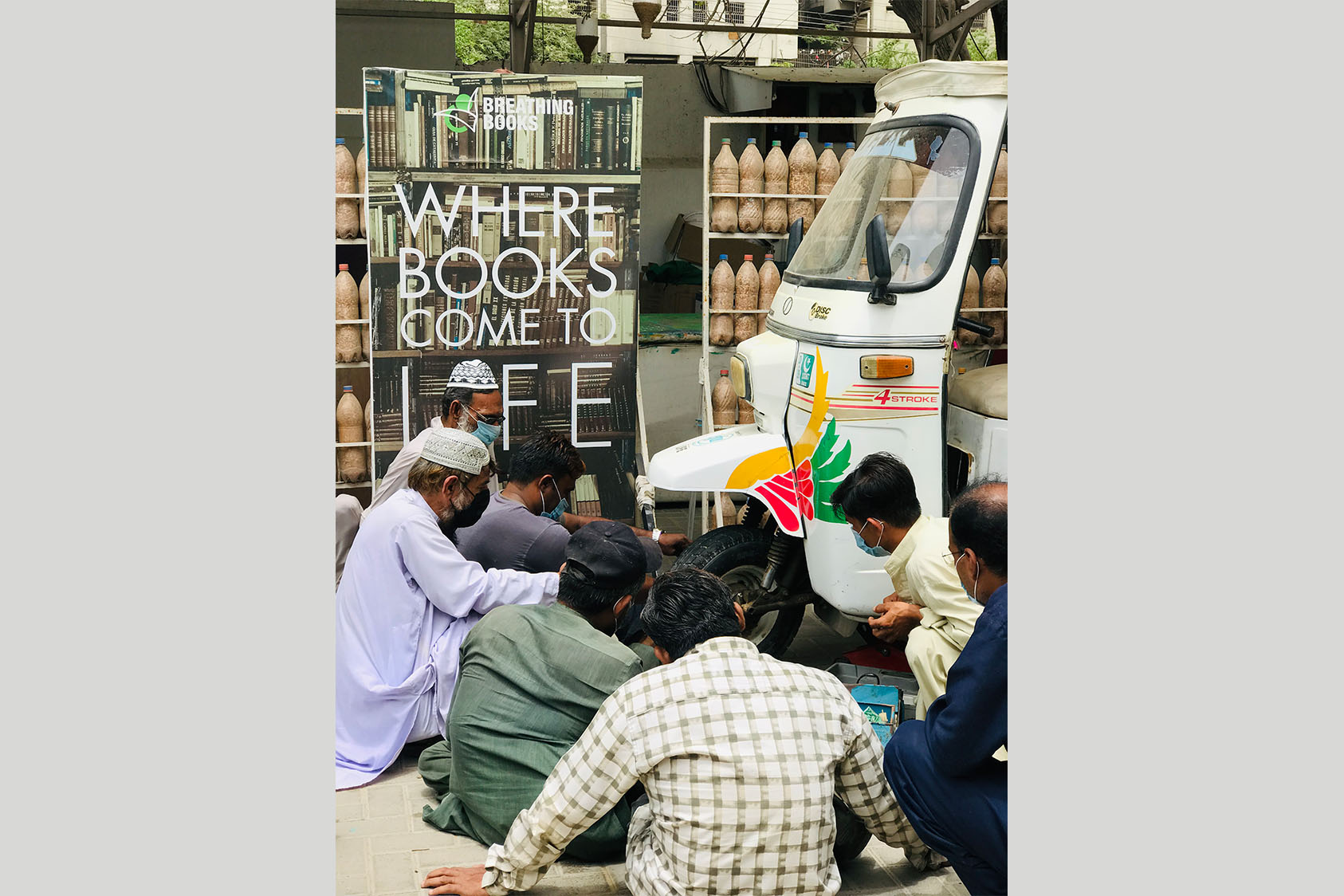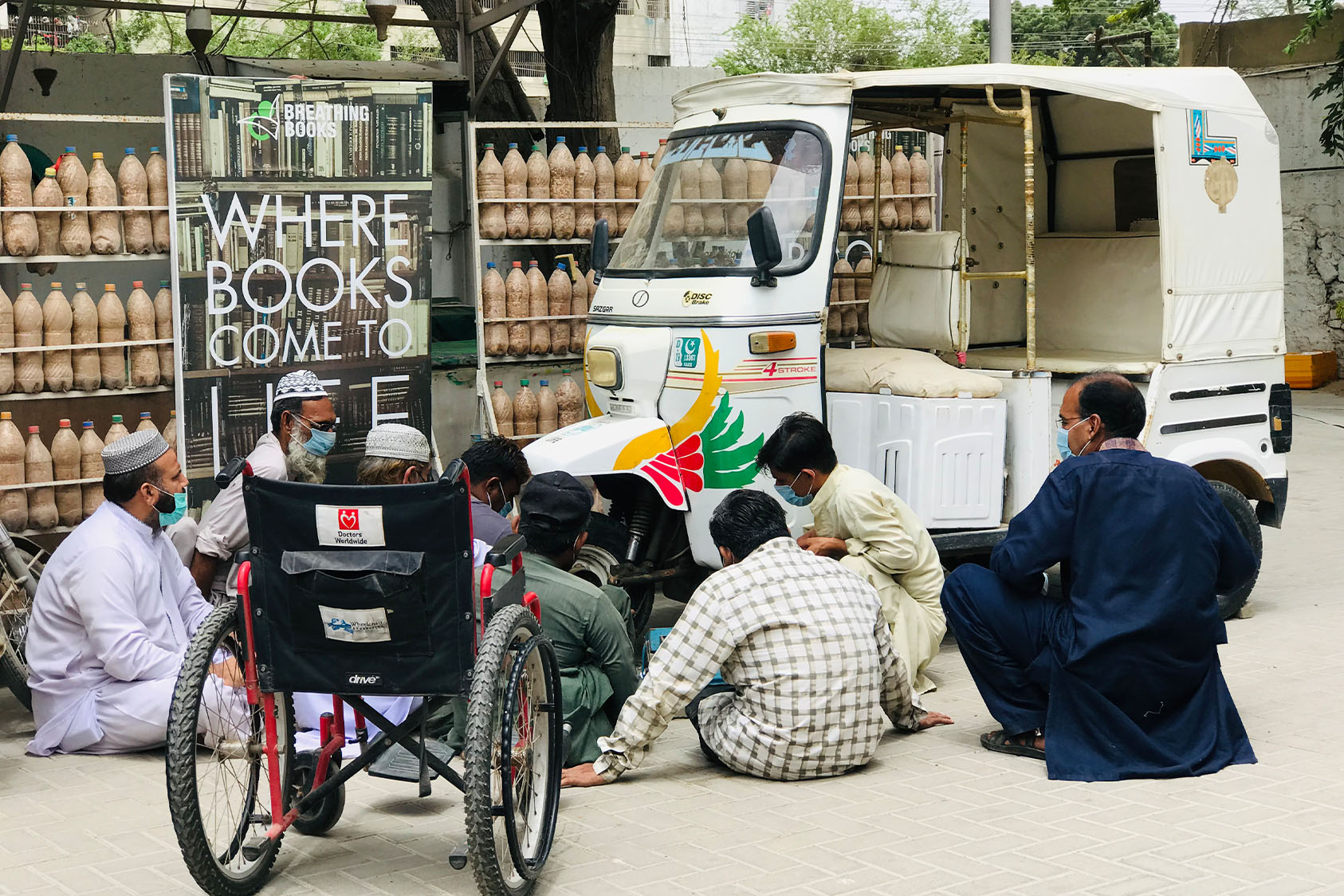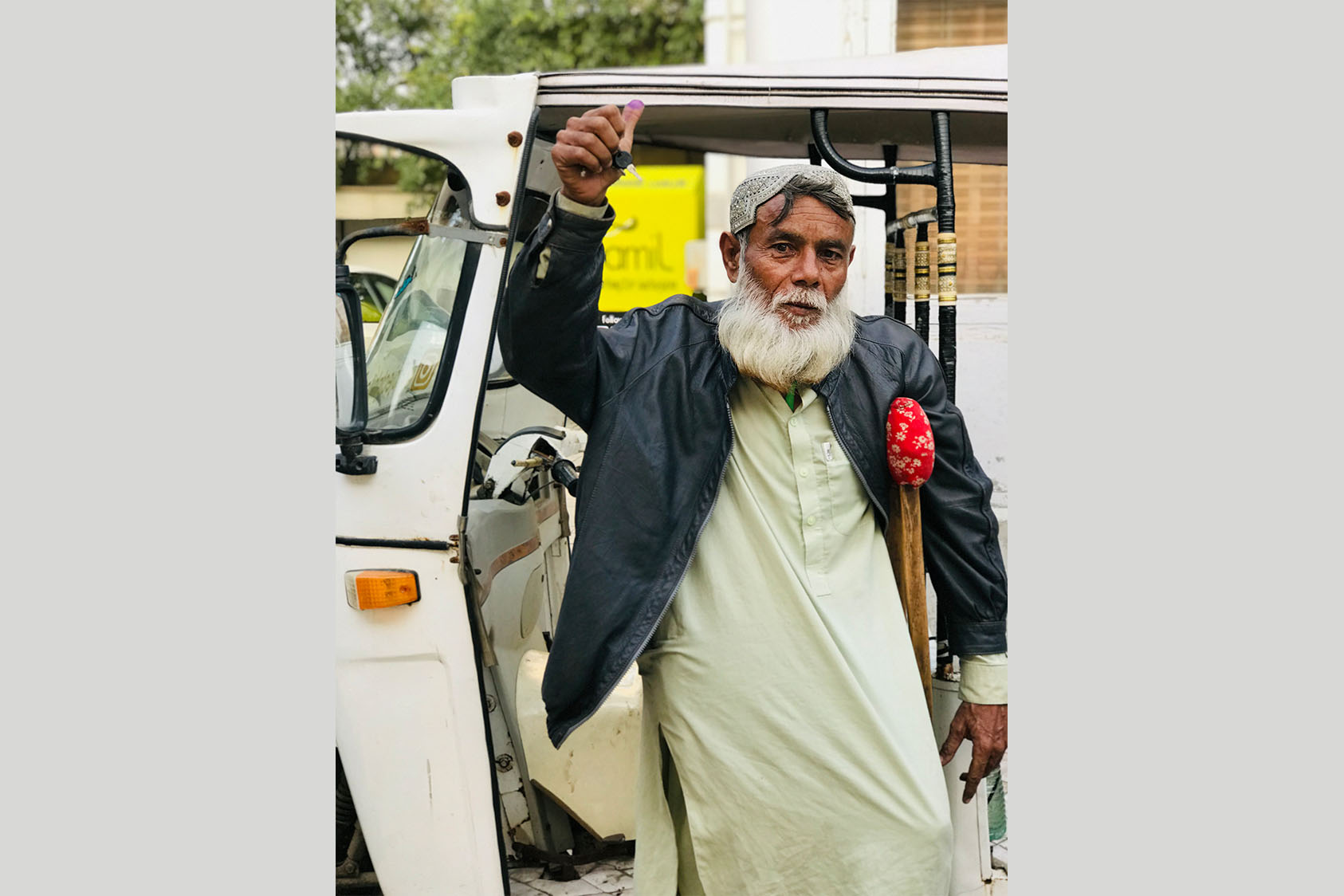Khudmukhtari
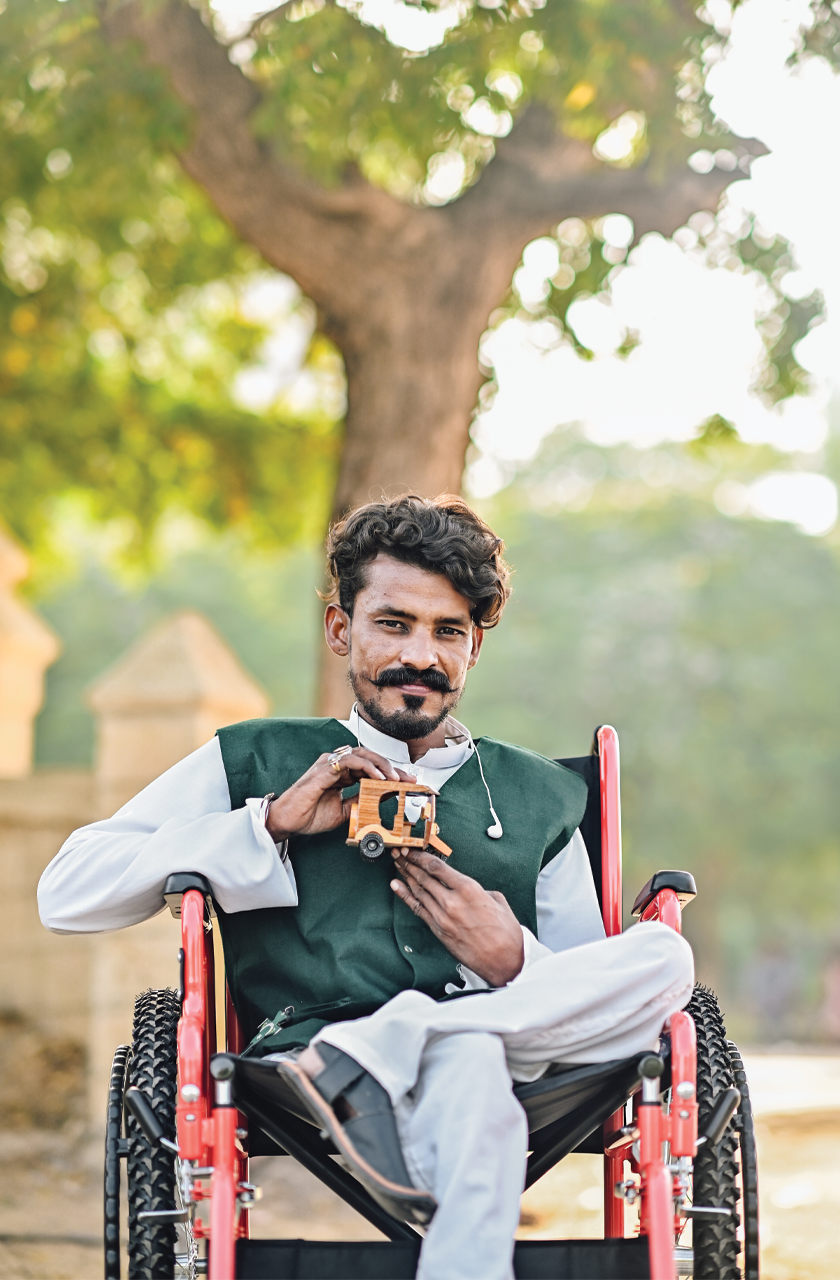
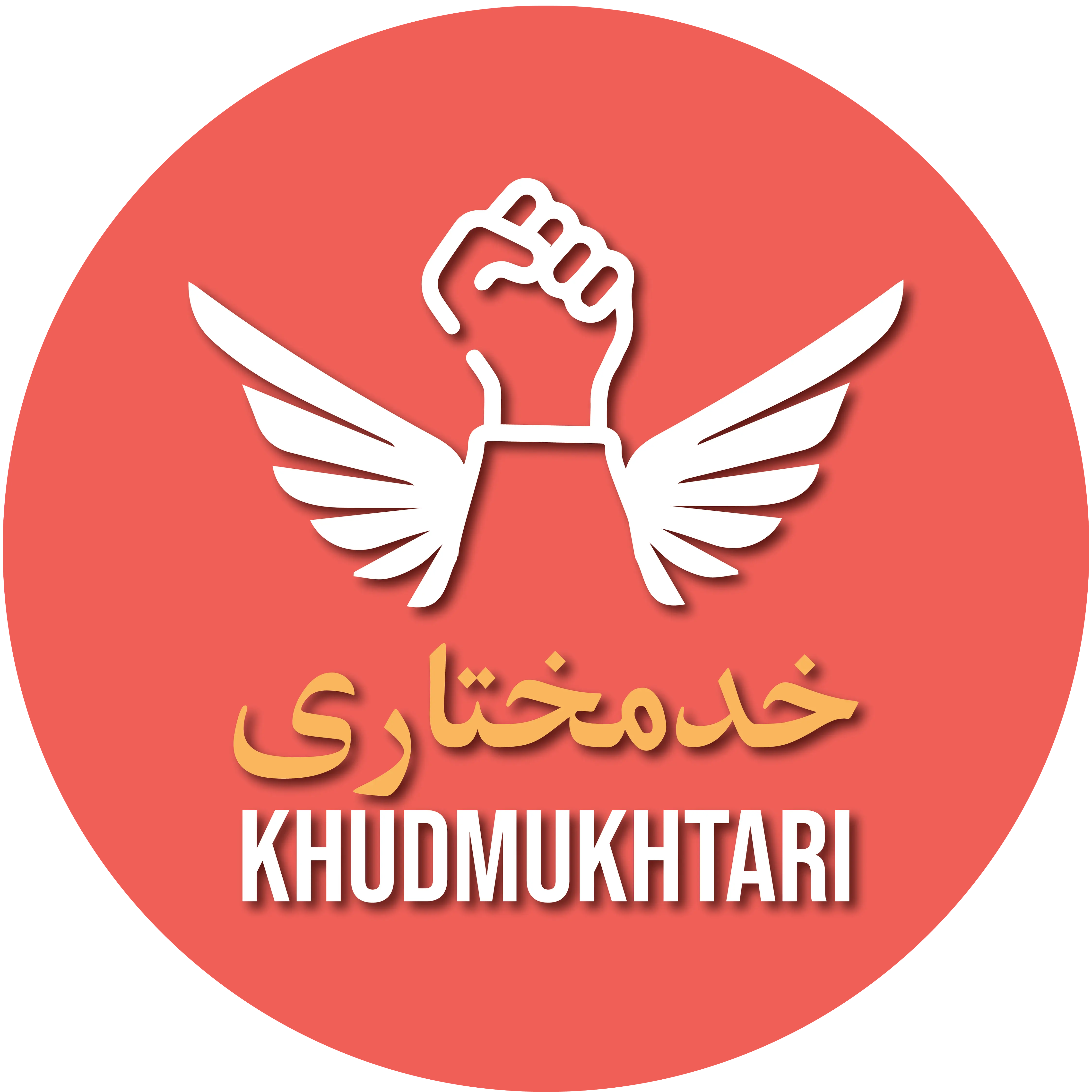
At this point in time, more than 90% of persons with disabilities are out of the workforce in Pakistan. This exclusion is a grave loss for both the society and the Pakistan economy.
NOWPDP believes in innovative interventions to facilitate persons with disabilities earn their livelihoods and become Khudmukhtar - the state of being economically empowered and independent.
1. The Rickshaw Project
One of the oldest projects to have recently rekindled, The Rickshaw Project revolves around the retrofitting of rickshaws such that a control and usage is brought to the hands of persons with lower limb disabilities.
2. Shamil
Pakistan continues to grapple with challenges on multiple fronts. While some of these have been addressed, there are many more which have not been prioritized.
The Rickshaw Project
First and foremost, persons with disabilities are trained in rickshaw driving and road safety. Graduates with a good performance receive rickshaws and can earn a living through so they can become Khudmukhtar.
Shamil
Two of those issues that needed continued attention for sustainable change were:
- Water Disposal or Recycling
- Inclusion of disenfranchised minorities
From an environmental perspective, Karachi is home to around 20 million people, and it has no solution to the 16,500 tons of waste it generates daily. The most detrimental of this waste is plastic, which when left uncollected in dump sites, pollutes the environment. The staggering population and inefficient waste management make for an environmental time bomb.
We upcycle the three most contributing pollutants (cloth, paper, and plastic) to create eco-friendly, gender-neutral, and disability-inclusive products that are a necessity in today’s day and age.
This initiative also enables us to economically empower disenfranchised minorities, mainly persons with disabilities and provides them the opportunity to create sustainable livelihoods for themselves and their families by having the opportunity of working and earning from home. These individuals are trained in relevant skill sets such as stitching, screen printing, embroidery, paper making, etc.
Over the past year, Shamil has partnered with 24+ organizations on multiple fronts to ensure sustainability and environment consciousness among 8540+ individuals and their families while providing financial independence to 10 tailors, screen printers, and papermakers with disabilities.

